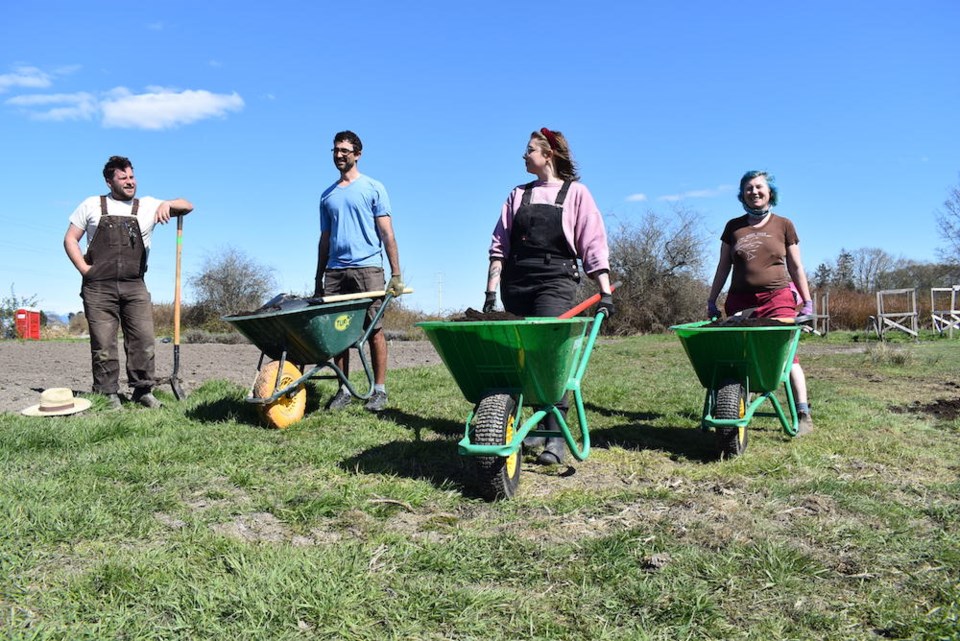Kwantlen Polytechnic's Richmond Farm School students are working the land again this spring after a year’s hiatus because of the pandemic.
And this year, there are twice as many students learning to be farmers than in previous years.
KPU decided to double the number of students in the eight-month program that has been running for 11 years – except in 2020 – after seeing its waitlist explode this year.
And not only has the number of students doubled, the land they are farming this year is more than five times larger, with three acres under production.
With the program about one month in, Daniel Garfinkel, who runs the farm school, said this year’s crop of students are becoming less “city awkward” and are starting to get used to getting their hands dirty.
Courses include seed saving, soil science and pest management, cut flower production – and this year, they’re taking a course farm construction for the first time. The student will be working with a red seal carpenter to build a harvest table and washing stations.
“Our goal is to give them the most holistic, realistic sense of farming and we want them to have a plethora of broad skills,” Garfinkel said. “As a small-scale farmer, you don’t often have the finance options to hire a soil scientist or a pest management specialist – so you do have to wear many, many hats.”
Garfinkel said the pandemic has re-emphasized the need for local food, and Richmond, with its “absolutely outstanding soil” is an ideal location to grow local food.
“We have such an opportunity to do that in Richmond – to really connect local residents to local food sources, to local farmers, and growing the food in Richmond, selling it in Richmond and eating it in Richmond,” he said.
But there seems to be a disconnect between many Richmond residents and businesses and the farming community.
This was brought home to Garfinkel recently when he tried to find a tractor part that needed replacing. After being laughed at Richmond businesses like Lordco and Home Depot, he was told to go to Chilliwack where there is farming.
In the end he found the part in Langley.
Challenges, however, for farmers include securing land with the Lower Mainland being one of the most expensive places just to live and the cost of land prohibitive for starting farmers.
“You have to sell a lot of carrots to think about buying land,” Garfinkel said.
Most farmers are just “scraping by,” he added.




